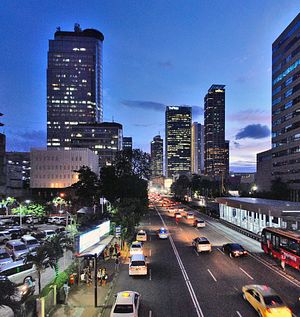Over the past few months, the administration of Indonesian President Joko “Jokowi” Widodo, who secured reelection earlier this year, has been more public about potentially moving forward with long-mulled plans to move the country’s capital away from Jakarta. While there are certainly clear reasons for doing so, the outcome of the decision is far from clear, as are its implications.
The issue of selecting Indonesia’s capital city has not been without contention historically speaking. Indonesia’s founding father Sukarno had pushed for alternatives to Jakarta as well, but any move was stymied due to a range of considerations, including fears of upsetting the ruling clans of Java.
More broadly, capital shifts tend to be controversial even if their record of success is better than critics sometimes give them credit for. Within Southeast Asia, this is not unheard of even if the consequences have been mixed. Most notably, Malaysia moved its administrative capital from Kuala Lumpur to Putrajaya, and Myanmar shifted its capital from Yangon to Naypyidaw where dramatic political ructions and the collapse in Western tourism, amid an absence of business, has limited the capital’s prospects.
But for Jakarta, the case for a capital shift has been becoming ever clearer. Built on a swamp, Jakarta is home to more than 10 million people and is notorious for the world’s worst traffic congestion and as noted by Heri Andreas from the Bandung Institute of Technology, the capital is sinking fast.
“The potential for Jakarta to be submerged isn’t a laughing matter,” he recently quipped. “If we look at our models, by 2050 about 95 percent of North Jakarta will be submerged.”
It’s a problem sorely aggravated by a shrinkage of underground water supplies. As a case in point, when city authorities recently inspected 80 skyscrapers along Jalan Thamrin in central Jakarta, they found 56 buildings had groundwater pump sand caught 33 extracting water illegally.
The sites reportedly being mooted – including Tanah Bumbu, North Penajam Paser, and Palangka Raya – could constitute gains for Indonesia and Jokowi. The area within which they are located is less disaster prone in an archipelago notorious for seismic activity and floods. The area is also centrally located amid 17,000-odd islands.
Such a capital shift would no doubt have political and economic implications. Jokowi could get a boost for its infrastructure plans – airlines won’t mind the increased traffic, and construction groups will be lining-up for a slice of the $33 billion already earmarked for initial projects. Indeed, the capital shift could be remembered as a signature legacy item for Jokowi if he plays his cards right.
Yet any shift is not without its challenges. In Jakarta, business groups are worried that their lobbying power will be reduced by the shift elsewhere, and that might not be bad for good governance. The same can be said for the Javanese who have controlled and enjoyed political advantage over the rest of the country, from Jakarta, since independence in 1945. The shift elsewhere will help in spreading power across isolated provinces.
There are other concerns too. Environmentalists are justifiably concerned for the pristine rainforests and wildlife. Some political analysts who see the announcement as more hype over substance and as a means for Jokowi to assert his authority in the wake of the recent election.
Nevertheless, these range of considerations aside, practically speaking, Jakarta’s capital shift time looks to have come. Most outlooks paint a grim picture for a capital which sits just eight meters above sea level, and a used by date of 2050 is commonly bandied about despite Jokowi’s infrastructure upgrades that includes an underground metro railway. For those reasons alone Indonesians need a final decision on where to locate the new capital sooner rather than later.
Luke Hunt can be followed on Twitter @lukeanthonyhunt.

































